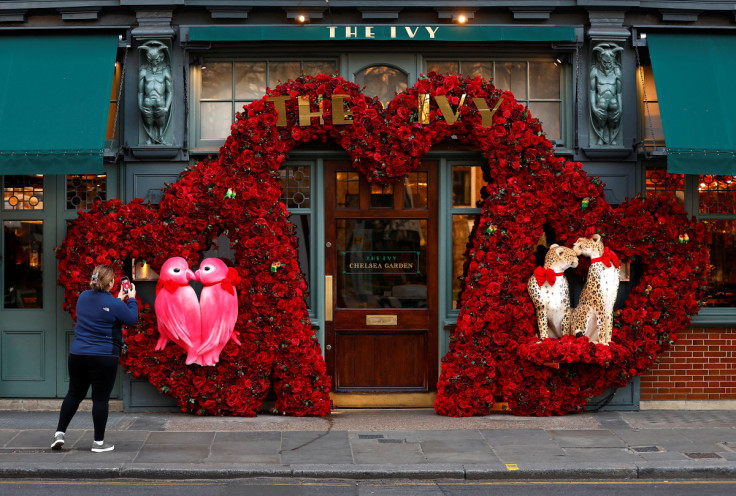Valentine's Day spending boosts British retail sales in February - BRC
Valentine's Day helped to boost British retail sales in February but volumes remained down on last year as households cut back on non-essential items, a survey published on Tuesday showed.

Valentine's Day helped to boost British retail sales in February but volumes remained down on last year as households cut back on non-essential items, a survey published on Tuesday showed.
The British Retail Consortium (BRC) said spending in store chains increased 5.2% in annual terms last month, well below the 6.7% rise in February 2022. Sales were up on the 4.2% rise in January.
Helen Dickinson, BRC's chief executive said retailers face volatile trading conditions as consumers will be worried about energy prices and their taxes which are set to rise further in April.
The BRC figures are not adjusted for inflation, meaning the rise in sales masked a much larger drop in volumes.
While the Bank of England has signalled that inflation has turned the tide, British households are still contending with inflation running at over 10%, more than five times the Bank's 2% target.
The BoE raised interest rates to 4% in February and hinted that it was close to ending its run of rate hikes but said there were concerns about inflationary pressure in the labour market. Financial markets expect interest rates, now the highest since 2008, to rise to 4.75% later this year.
Despite recent signs of improvement in Britain's economic prospects, Paul Martin, UK head of retail at KPMG which co-produces the figures, said the outlook for the retail sector will continue to be challenging with consumer spending falling in real terms.
Separate data from Barclays showed consumer spending on payment cards rose by 5.9% year-on-year in February.
Barclays said annual growth rates were impacted by the lifting of Omicron Plan B restrictions last year, which caused a spike in spending due to pent-up demand.
Esme Harwood, Director at Barclays, said several categories saw growth taper off in February as cash-strapped shoppers, hit by higher prices and shortages in fruit and vegetables, changed their grocery shopping habits.
"The recent fruit and veg shortages are forcing Brits to consider alternatives for their weekly shop, as they continue to look for savvy ways to offset rising food price inflation," Harwood said.
"Popular trends this month include buying 'dupes' of popular products, shopping at discount stores, and limiting Easter spending."
Copyright Thomson Reuters. All rights reserved.





















